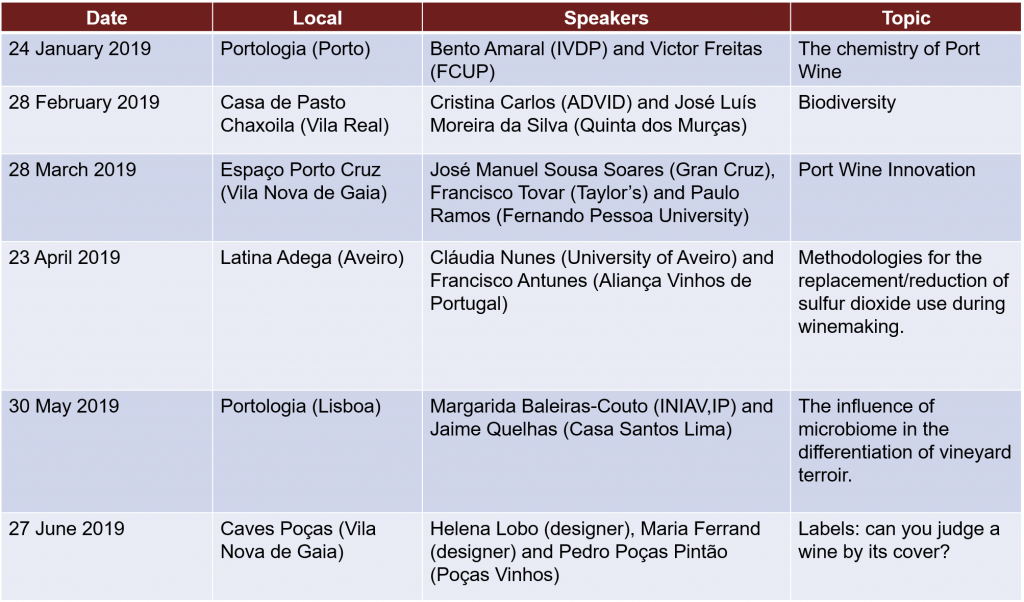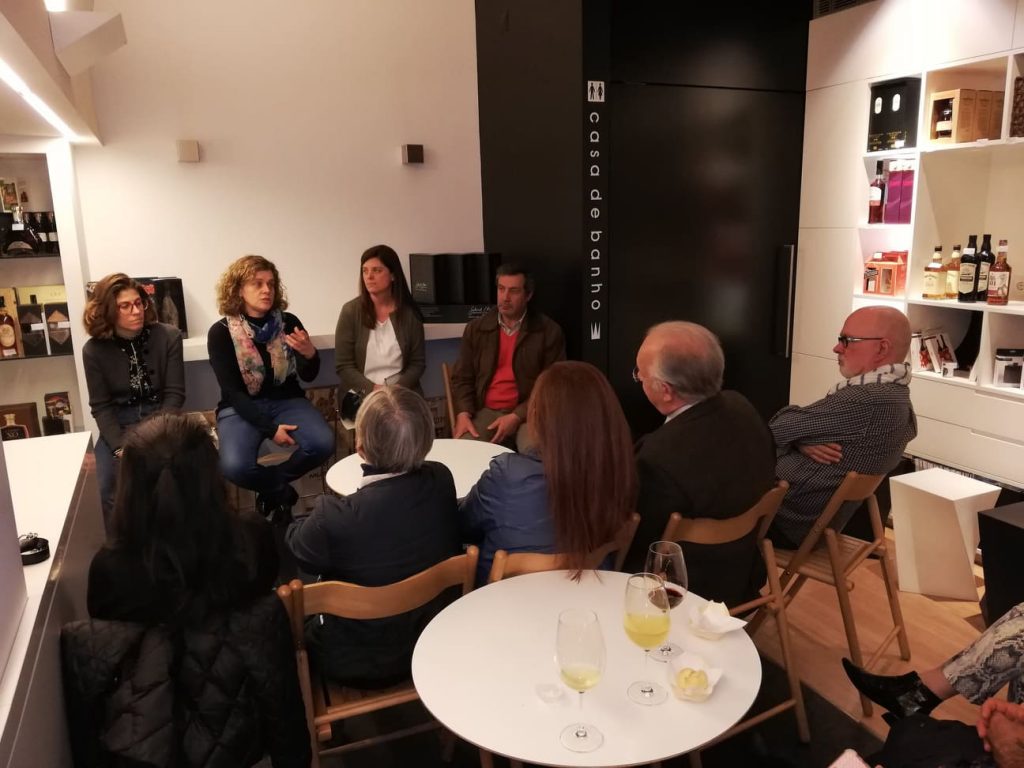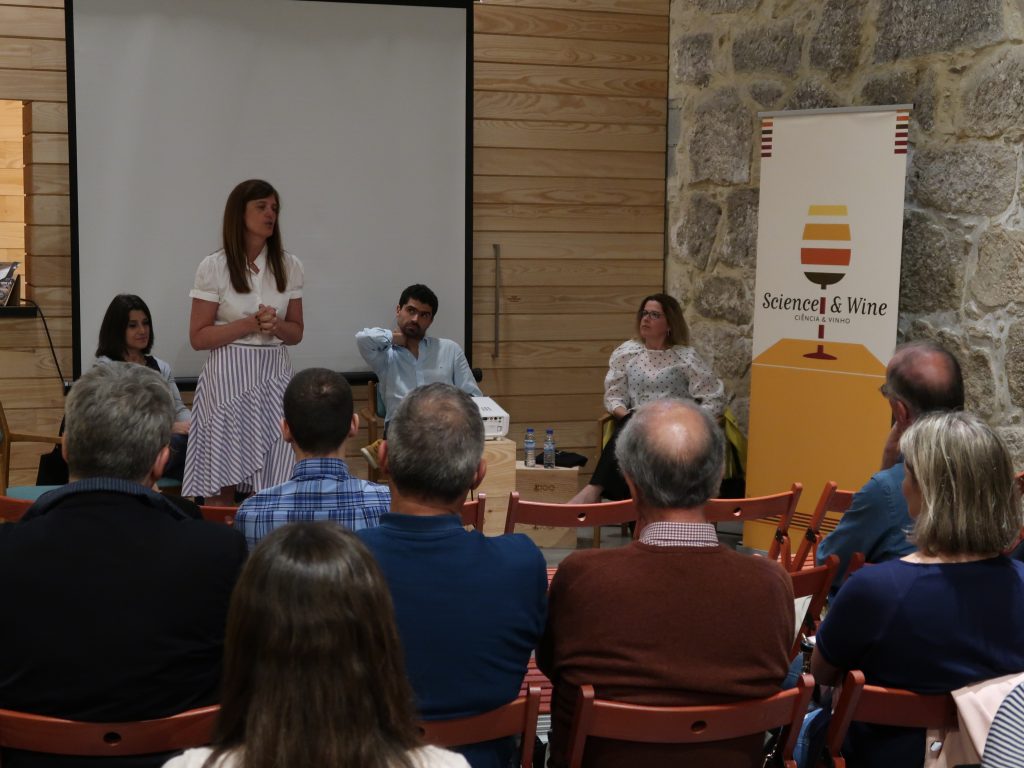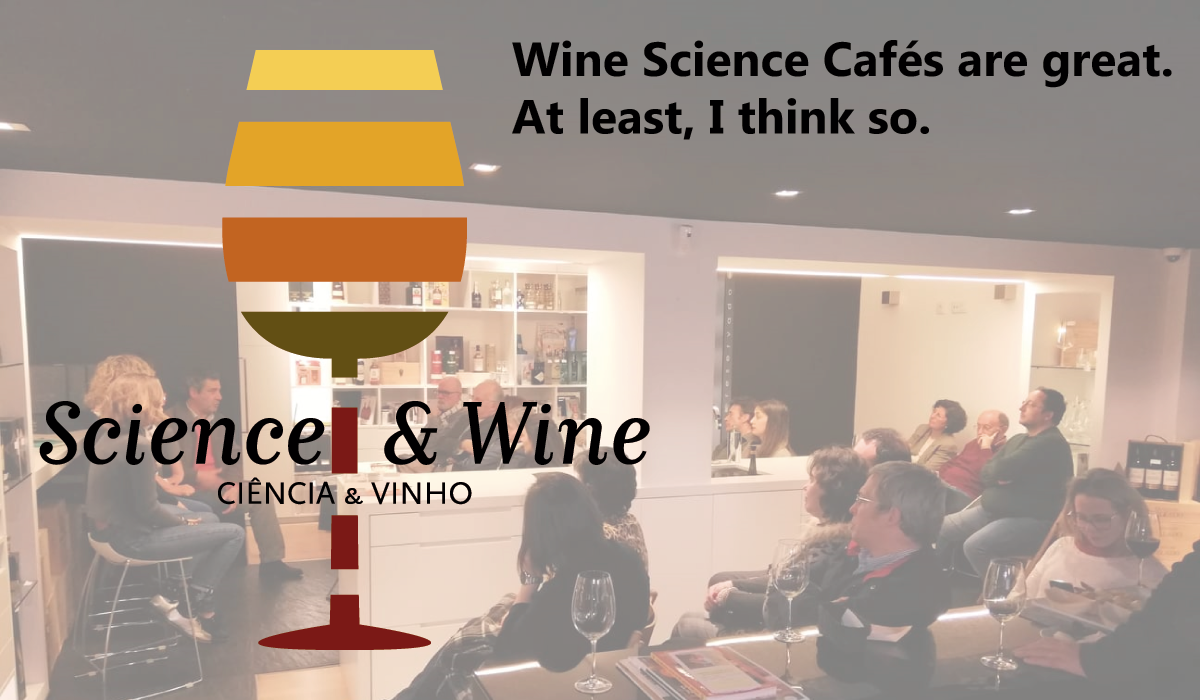By Paula Silva
Wine Science Cafés started in January of 2019, so it is time to make a reflection about their meaning and importance. These events are one of the approaches included in Science & Wine communication project aimed to share scientific data in vine and wine research areas. Wine Science Cafés are events where, for the price of a glass of wine, anyone can meet to discuss the latest ideas of science that are impacting wine sector. They were planned to be an opportunity for both scientists and the community to understand each other’s perspective in a nonformal setting and provides an opportunity to increase science literacy. Wine Science Cafés generally occur in the last Thursday of each month and will take place in casual settings such as wine houses, restaurants, wine cellars and coffeehouses in Portugal (every two-months in Porto). A typical Wine Science Café format is approximately 90 minutes in duration and involves both expert speakers and a moderator. Speakers include both scientists and people of wine sector. The moderator introduces the Café concept, the topic and the speaker(s). Each speaker presents for 5–10 minutes without any visual aids. A 15-minute break is given to allow participants to eat something and drink a glass of wine and generate questions. The moderator then opens the discussion, mainly in a question-and-answer format. In table 1 you can find the topic and the invited speakers from the first six Wine Science Cafés.

The results from our six Wine Science Café reveal that this is a successful format to promote public engagement with wine science and to provide a forum for scientific inquiry for the general public. The reason for this success can be attributed to a few factors. The key to an effective knowledge-translation is for sure the informality and accessibility of these events, which have a non-competitive and friendly atmosphere that encourages the discussion. Wine Science Cafés are also inexpensive to, locally relevant, and attract a mixed audience. One of the main reasons of success is that there are reciprocal benefits to both the speakers and participants.
Our plans for the future of the Wine Science Cafés is to continue to invite attractive speakers to talk about emerging issues and to increase the interaction strengthen between Wine Science Cafes and its territorial context and move Wine Science Cafés outside of the big metropolitan cities. For example, to promote a Wine Science Café about grape harvest, during that season in a Quinta or about wine tourism in one place that have this kind of offer. We need to analyse the event periodicity to find the best one to keep and expand our audience. We will try to develop networks for both speakers and organizers in Europe.
In conclusion, Wine Science Cafés highlights are an effective platform to engage publics in dialogue about wine. Due to its interactive format, it was possible to obtain viewpoints that may not have been captured through other public engagement approaches.







